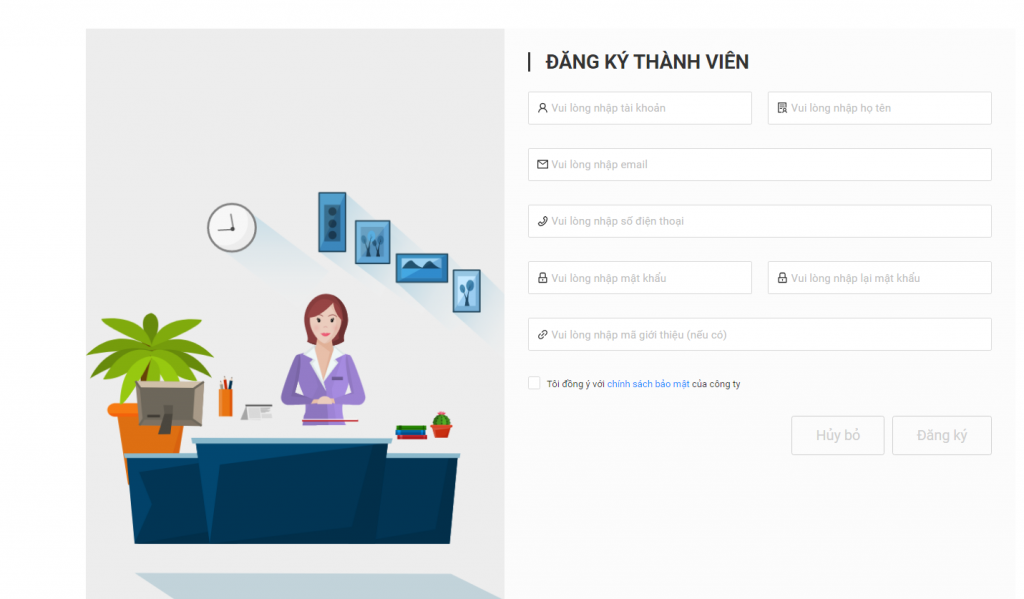Ra Khơi TV là trang website nổi tiếng chuyên về cung cấp dịch vụ xem bóng đá trực tuyến với đa dạng các đường link uy tín. Mang đến cho người hâm mộ bóng đá nhiều trải nghiệm xem live đỉnh cao tại các giải đấu bóng đá lớn trong và ngoài nước. Với sự đầu tư mạnh về công nghệ, Rakhoi đã và đang khẳng định được vị thế của mình trong lĩnh vực này. Thu hút được hàng nghìn người dùng yêu bóng đá lựa chọn theo dõi mỗi ngày.

Sơ lược đôi nét về kênh website Ra Khơi TV
Rakhoi TV ra mắt người hâm mộ khi nhu cầu xem live bóng đá tăng cao. Hiện website đang phát sóng đầy đủ các trận bóng đá hàng đầu với đường truyền ổn định. Hội tụ dàn bình luận viên nổi tiếng như Giàng A Lử, Giàng A Phò giỏi chuyên môn, luôn sẵn sàng bùng cháy cùng với người xem.
Chỉ trong một khoảng thời gian ngắn, kênh Ra Khơi TV đã xây dựng được thương hiệu của mình. Được nhiều người yêu bóng đá biết đến và tin tưởng truy cập mỗi ngày để xem live bóng đá đỉnh cao miễn phí.
Bên cạnh việc phát trực tiếp các trận đấu bóng đá full HD từ các giải đấu chuyên nghiệp trên thế giới. Rakhoi TV còn cung cấp nhiều thông tin cẩm nang bóng đá hữu ích như: Tiểu sử cầu thủ, đội bóng, bảng xếp hạng, nhận định kèo,…Kênh Ra Khơi cam kết cung cấp cho người dùng dịch vụ live ổn định, đáng tin cậy. Nói không với tình trạng đứt hình, âm thanh hay giật lag trong quá trình phát trực tiếp trận bóng.
Mục tiêu phát triển của kênh Ra Khơi TV là gì?
Ngay từ đầu ra mắt, kênh Rakhoitv đã được đầu tư một cách bài bản và chỉnh chu nhất. Đội ngũ quản trị của kênh đã chi ra số tiền khủng đề thiết kế giao diện website live bóng đá miễn phí cho mọi người hâm mộ Việt cùng sử dụng.
Bên cạnh đó, kênh còn chi tiền lớn để mua bản quyền các giải bóng đá nổi tiếng hàng đầu thế giới như: EURO, World Cup, Cúp C1, Ngoại hạng Anh,…Đích đến cuối cùng mà Rakhoi muốn hướng đến chính là trở thành địa chỉ bóng đá miễn phí số 1 trên thị trường Việt Nam.
Tính đến nay, Rakhoi TV đã có nhiều năm phát triển và từng bước hoàn thành tốt mục tiêu đề ra ban đầu. Ngày càng khẳng định được thương hiệu của mình trên cộng đồng những người hâm mộ bóng đá. Số lượng thành viên truy cập vào Rakhoitv tăng theo cấp số nhân.
Đặc biệt, Rakhoi đang làm tốt phương châm đặt trải nghiệm người xem lên hàng đầu. Website đã và đang làm tốt dịch vụ, sản phẩm nâng cấp mình hơn mỗi ngày để người dùng không bao giờ thất vọng.

Ra Khơi TV – Kênh bóng đá trực tuyến hàng đầu khu vực
Theo khảo sát của các chuyên gia, đa phần mọi người đều lựa chọn xem live bóng tại Rakhoitv và có những đánh giá hài lòng tích cực. Tại website này, người chơi sẽ được xem nhiều trận đấu trực tiếp bóng đá chất lượng cao. Đồng thời được sử dụng nhiều tính năng hữu ích khác về bộ môn thể thao vua này. Điển hình như:
Rakhoitv cập nhật tin tức bóng đá mới nhất
Truy cập vào giao diện chính thức của Ra Khơi, người chơi sẽ thấy đơn vị này có xây dựng hẳn một chuyên mục tin tức. Tại đây, đội ngũ biên tập viên của kênh sẽ tìm kiếm, biên tập lại những thông tin, chuyển động bóng đá ở trong và ngoài nước.
Người hâm mộ không phải đi đâu xa để có thể nắm được tình hình bóng đá trong 24h vừa qua về: Chuyển nhượng, giải đấu, trước trận đấu, huấn luyện viên, cầu thủ,…Tất cả tin tức tại Rakhoitv đều được kiểm duyệt chặt chẽ với độ chính xác tuyệt đối.
Ra Khơi TV cập nhật lịch thi đấu các giải bóng đầy đủ
Thêm một chuyên mục hấp dẫn của website Rakhoi nhằm thu hút sự quan tâm của người hâm mộ bóng đá. Đó chính là kênh đều đặn mỗi ngày cập nhật lịch thi đấu các giải bóng đá chuyên nghiệp trong nước và trên thế giới. Nhờ vậy, người hâm mộ Việt sẽ luôn có sự chủ động trong việc sắp xếp thời gian xem live trận cầu hoặc đội bóng mình yêu thích thi đấu.

Ra Khơi TV cập nhật bảng xếp hạng các giải đấu chính xác
Tại danh mục này trên website Rakhoitv, người dùng sẽ nhanh chóng nắm bắt được thứ hạng của các đội bóng ở bất kỳ giải đấu bóng đá mình yêu thích. Mỗi trận đấu kết thúc, số điểm các đội ghi được sẽ quyết định thứ hạng của họ trên bảng xếp hạng. Và đội ngũ biên tập viên của Rakhoi TV sẽ ngay lập tức cập nhật mới để người hâm mộ nắm chính xác thành tích các đội bóng qua mỗi vòng đấu.
Ra Khơi TV cập nhật kết quả trận đấu ngay lập tức
Thêm một tính năng nổi bật nữa giúp kênh website Rakhoitv được người hâm mộ đánh giá cao. Đó chính là danh mục cập nhật kết quả sau mỗi trận bóng kết thúc. Người hâm mộ, đặc biệt các bạn bận rộn không có thời gian xem live vẫn có thể nắm bắt được tỷ số trận đấu mình quan tâm.
Rakhoi TV xây dựng highlight trận đấu ấn tượng
Highlight trận đấu bóng đá vừa mới khép lại của kênh Rakhoi TV vô cùng ấn tượng, nhận được phản hồi tích cực từ người hâm mộ. Theo đó, website đầu tư đội ngũ biên tập viên với tay nghề cứng. Họ sẽ cắt ghép những pha ghi bàn, tranh chấp bóng quan trọng trong trận đấu vừa mới diễn ra thành những video ngắn từ 5-15 phút.
Người hâm mộ nào không có thời gian xem live sẽ chọn vào đây để xem tóm tắt diễn biến trận đấu mình vừa bỏ qua. Các bạn sẽ nắm được diễn biến chính trận cầu trong thời gian ngắn để không phải nuối tiếc.
Ra Khơi TV cập nhập tỷ lệ kèo chuẩn xác
Kênh Rakhoitv còn có đội ngũ chuyên gia bóng đá chuyên soi kèo hùng hậu. Họ sẽ chịu trách nhiệm phân tích trước trận và đưa ra bảng kèo trận đấu với số liệu chuẩn xác cao, thông tin cực chuẩn. Những người chơi có sở thích soi kèo bóng đá sẽ vào mục này để tham khảo, làm nền tảng để tham gia soi kèo trận đấu tại nhà cái chính xác hơn.

Ra Khơi TV xây dựng mục tips hữu ích
Tips trên website Ra Khơi chính là tính năng giúp người dùng tham khảo mẹo cược, kinh nghiệm soi kèo hay từ các cao thủ hàng đầu. Nhờ đó, người chơi sẽ tăng được tỷ lệ cược thắng bóng đá, thu về tiền thưởng hấp dẫn khi soi kèo bóng trực tuyến.
Rakhoi TV cung cấp livescore hiện đại
Livescore của Rakhoitv chính là ứng dụng thông minh được đội ngũ quản trị kênh tạo ra. Mục đích chính là để giúp người dùng cập nhật tỷ số xem live bóng đá đang diễn ra. Các bạn sẽ nắm chắc được kết quả trận đấu mà bản thân không thể xem phát trực tiếp bóng đá được.
Đánh giá ưu điểm nổi bật của website phát trực tiếp bóng đá Ra Khơi TV
Không phải ngẫu nhiên số lượng thành viên truy cập vào website Rakhoi tăng đều mỗi ngày. Lý do là vì kênh mang lại cho người dùng nhiều lợi ích nổi bật sau:
Thiết kế giao diện website Ra Khơi TV khoa học, ấn tượng
Theo chia sẻ của đội ngũ quản trị kênh Rakhoitv, trước khi xây dựng website, họ đã khảo sát kỹ hành vi người dùng nhiều. Từ đó đưa ra nhiều bản thảo trước khi có được giao diện website cực hoành tráng và dễ sử dụng như hiện tại. Điểm cộng của giao diện website Rakhoitv chính là những người không rành về công nghệ cũng dễ dàng tìm kiếm được thông tin, link live bóng đá mình yêu thích tại đây.
Ngoài ra, website Rakhoi còn có sự kết hợp màu sắc nhận diện thương hiệu hài hòa, tinh tế. Vừ tôn lên được các chức năng chính của kênh cung cấp vừa giúp người dùng không bị nhức mỏi mắt khi nhìn vào màn hình quá lâu.
Trên thanh menu Rakhoi TV, cập nhật đủ các chuyên mục cơ bản để người dùng bấm chọn. Trang không chèn nhiều banner quảng cáo ở trang chủ, đường truyền ổn định, tốc độ load trang nhanh chóng. Đặc biệt, giao diện của Rakhoi còn có tính tương thích cao với mọi hệ điều hành trên thị trường như: Window, IOS, Android,…

Rakhoitv phát sóng đầy đủ các giải bóng đá lớn trên thế giới
Người dùng khi lựa chọn truy cập vào website Rakhoi TV sẽ được xem phát trực tiếp bóng đá của các giải đấu hấp dẫn nhất hành tinh. Điển hình như:
- Premier League: Đây chính là giải vô địch bóng đá Ngoại hạng Anh.
- UEFA Champion League hay còn gọi là cúp C1: Là giải vô địch bóng đá lớn nhất khu vực châu Âu.
- La Liga: Đây chính là giải vô địch bóng đá Quốc gia Tây Ban Nha.
- Serie A: Đây chính là giải vô địch bóng đá Quốc gia Ý.
- Bundesliga: Đây chính là giải vô địch bóng đá Quốc gia Đức.
- V.League: Đây chính là giải đấu vô địch bóng đá Quốc gia Việt Nam.
- Bên cạnh đó, Rakhoi còn phát trực tiếp bóng đá nhiều giải bóng chuyên nghiệp khác tại: Châu Mỹ, châu Âu, châu Á,…
Lưu ý: Website Ra Khơi cập nhật cả lịch phát sóng bóng đá trực tiếp vào đầu giờ mỗi ngày với thông tin chi tiết. Bạn nếu muốn nắm rõ trận đấu nào sẽ diễn ra ngày hôm nay, đặc biệt thời gian thi đấu ra sao? Nên chủ động vào trang để tìm hiểu và có sự sắp xếp hợp lý thời gian xem phát trực tiếp.
Xem bóng đá full HD tại kênh Ra Khơi TV
Ra Khơi tự hào là 1 trong số ít các kênh website phát sóng bóng đá trực tiếp tiên phong ở Việt Nam ứng dụng công nghệ 4.0. Vậy nên, các bạn khi xem live tại kênh sẽ cảm nhận rõ chất lượng hình ảnh các trận bóng cực kỳ rõ nét với chế độ full HD. Điển hình như:
- Trận đấu live bóng đá thuộc các giải đấu hàng đầu thế giới trên website Rakhoi TV đều có độ phân giải hình ảnh full HD. Nhờ đó, người hâm mộ sẽ nhận được hình ảnh chuyển động của các cầu thủ và quả bóng trên sân sắc nét.
- Bên cạnh đó, hệ thống âm thanh trong trận đấu chân thực, âm lượng lớn cực kỳ sôi động. Người xem sẽ cảm nhận được tính chất quyết liệt và chân thực nhất trên khán đài trận cầu đó.
- Đặc biệt, kích thước màn hình xem phát trực tiếp bóng đá tại Rakhoi TV đúng chuẩn, tích tương thích cao với mọi hệ điều hành và thiết bị điện tử.
- Thậm chí, website Ra Khơi TV còn cho phép người dùng thay đổi kích thước màn hình cũng như tăng giảm âm lượng, độ phân giải theo ý muốn. Miễn các bạn có được trải nghiệm xem live bóng đá tốt nhất tại Rakhoitv.
Xem bóng đá trực tiếp tốc độ cao tại Rakhoi TV
Điểm cộng lớn nữa dành cho kênh Ra Khơi mà người hâm mộ không nên bỏ qua, đó chính là đường truyền ổn định với công nghệ hiện đại. Khi bạn xem live bóng đá tại kênh sẽ cảm nhận rõ được tốc độ trận đấu diễn ra mượt, ổn định, nói không với tình trạng đứng hình hay giật lag.
Dĩ nhiên, với điều kiện người hâm mộ phải kết nối thiết bị xem live của mình bằng đường truyền mạng mạnh, ổn định. Đối với trường hợp hy hữu bị đứng hình, bạn hãy bấm dừng trận đấu bóng đá ít giây rồi tiếp tục xem nó sẽ không bao giờ lặp lại nữa.

Rakhoi TV có đội ngũ bình luận viên giỏi, máu lửa
Ra Khơi TV còn được người hâm mộ đánh giá cao khi tuyển chọn được đội ngũ bình luận mỗi trận đấu bóng đá chuyên môn cao. Đặc biệt, họ luôn nhiệt huyết, hết mình cùng người xem trong mỗi trận bình luận trên trang Rakhoitv.
Hiện tại, kênh Ra Khơi đang có đội ngũ bình luyện viên tiếng Việt hùng hậu. Họ sẽ cung cấp nhiều thông tin hữu ích về hai đội bóng trong suốt quá trình live. Đồng thời tích cực tương tác với người xem để có được buổi xem bóng vui vẻ, thú vị nhất.
Ra Khơi TV cung cấp hệ thống link live bóng đá chất lượng
Hiện trang website Rakhoi TV đang cung cấp đường link xem trực tiếp bóng đá đa dạng và đảm bảo chất lượng tuyệt đối. Người dùng dễ dàng tìm kiếm được đường link trận đấu mình yêu thích và truy cập vào xem. Cụ thể:
Kênh Ra Khơi cập nhật link xem bóng đá miễn phí hoàn toàn và người chơi có thể vào để lấy link bất kỳ lúc nào.
Thời gian mà kênh Rakhoitv cập nhật link live khá sớm. Thường trước khi trận bóng bắt đầu được 1 tiếng, hỗ trợ người hâm mộ lấy được đường link xem sớm nhất.
Thông thường mỗi trận đấu bóng đá phát sóng tại kênh Ra Khơi TV sẽ được cập nhật đủ 3 link để người dùng lựa chọn. Mục đích là để nếu link bạn đang chọn gặp sự cố hoặc vấn đề phát sinh sẽ ngay lập tức chuyển sang link khác theo dõi.
Cuối cùng, Rakhoitv cam kết với mọi người các link live bóng đá được cập nhật trên trang không bị dính mã độc hay virus. Các bạn có thể yên tâm tuyệt đối khi click vào tham khảo.
Rakhoi TV cam kết với không chèn quảng cáo
Ưu điểm nổi bật cuối cùng mà người hâm mộ dễ dàng nhìn thấy khi lựa chọn website Rakhoi TV, đó chính là ít khi nào thấy banner, quảng cáo hay popup xuất hiện vào các video phát trực tiếp bóng đá. Mục tiêu xây dựng trang ngay từ đầu của kênh chính là mang đến cho người dùng trải nghiệm tuyệt vời nhất.
Cụ thể, tại trang chủ của kênh Rakhoi có chèn banner quảng cáo nhà cái tên tuổi trên thị trường. Bởi đây được xem là nguồn thu duy nhất kênh có được ở thời điểm hiện tại nhằm vận hành bộ máy chỉn chu nhất phục vụ khách hàng. Vậy nên, nếu cảm thấy bị làm phiền, bạn có thể bấm tắt quảng cáo khi truy cập vào Rakhoi TV.

Hướng dẫn chi tiết các bước xem live bóng đá tại kênh Ra Khơi TV
Như đã phân tích ở mục trên, iao diện website Rakhoitv thiết kế khoa học, mọi đối tượng khách hàng đều có thể sử dụng được. Các bước thực hiện xem phát trực tiếp bóng đá tại kênh Rakhoi TV sau:
- Bước 1: Người dùng sẽ chuẩn bị thiết bị điện tử là máy tính hoặc điện thoại có kết nối mạng ổn định. Sau đó, các bạn nhanh chóng vào trình duyệt quen thuộc như Cốc Cốc, Google hay Firefox.
- Bước 2: Bạn sẽ gõ từ khóa tại mục tìm kiếm Rakhoi TV hoặc xem trực tiếp bóng đá tại RakhoiTV.
- Bước 3: Khi website của Rakhoitv xuất hiện, bạn sẽ truy cập vào rồi bấm chọn giải đấu, thời gian thi đấu trận đấu mình muốn xem trên thanh công cụ trang chủ.
- Bước 4: Khi hệ thống Ra Khơi hiển thị trận đấu bạn muốn, lúc này người dùng chỉ việc nhấn chuột vào Xem ngay rồi chọn link phù hợp với thiết bị đang sử dụng.
Những lưu ý quan trọng khi xem phát trực tiếp bóng đá tại Ra Khơi TV
Hiện website Rakhoi TV có tính tương thích cao với mọi hệ điều hành thiết bị điện tử. Các bạn dễ dàng truy cập vào kênh để xem bóng đá trực tiếp. Tuy nhiên để đảm bảo quá trình xem live bóng trên kênh Rakhoitv được thuận lợi, không mất nhiều thời gian, người dùng cần lưu ý một vài điểm sau:
- Đầu tiên, bạn phải kết nối thiết bị xem live của mình với đường truyền internet mạnh, tốc độ cao. Hiện kênh Rakhoi có ứng dụng công nghệ đường truyền hiện đại nhưng nếu thiết bị kết nối của bạn có vấn đề vẫn xảy ra tình trạng bị diss, lag hoặc đứng hình khi xem live.
- Đối với trường hợp kết nối mạng internet của người dùng tốt nhưng trận đấu vẫn bị giật lag. Tốt nhất, bạn nên dừng trận đấu đang xem khoảng 10s rồi mới tiếp tục xem để khắc phục hiệu quả tình trạng này ngay lập tức.
- Đối với các trận cầu quan trọng như chung kết, thu hút nhiều người theo dõi. Tốt nhất bạn nên sắp xếp thời gian truy cập để lấy link càng sớm càng tốt. Bởi thực tế, càng về sau, số lượng người truy cập vào xem live càng nhiều dễ dẫn đến tình trạng bị quá tải. Người chơi sẽ luôn bị đẩy ra khỏi kênh không thể vào được.

Tổng hợp các câu hỏi liên quan đến kênh Ra Khơi TV
Trong quá trình tìm hiểu và sử dụng dịch vụ tại website Rakhoitv, người hâm mộ sẽ đặt ra một số câu hỏi liên quan sau:
Xem phát trực tiếp tại Rakhoi có mất phí không?
Tính đến thời điểm hiện tại, Rakhoi TV đang miễn phí hoàn toàn mọi lượt người dùng truy cập vào kênh để xem live bóng đá. Đồng thời sử dụng các tính năng, chức năng Rakhoi cung cấp như: Bảng xếp hạng, lịch thi đấu bóng đá, livescore, highlight, tỷ lệ kèo, tips,….Dù miễn phí nhưng chất lượng các trận live bóng đá trên Rakhoi TV không thua kém trên tivi.
Có phải tạo tài khoản thành viên khi truy cập kênh Rakhoi?
Thực tế, website Ra Khơi TV không yêu cầu người dùng phải đăng ký tài khoản thành viên. Tuy nhiên, nếu muốn bạn có thể tạo để nhanh chóng nhận được những thông báo mới nhất từ kênh. Bản thân sẽ không bỏ lỡ bất kỳ trận đấu bóng đá quan trọng nào.

Kênh Rakhoi TV có chèn quảng cáo trong video live bóng không?
Như chúng tôi chia sẻ ở mục đầu của bài viết, Rakhoi TV chỉ chèn quảng cáo vào đầu trang chủ. Nói không với việc chèn quảng cáo vào giữa video phát trực tiếp gây ảnh hưởng đến cảm xúc của người xem. Đây là điểm cộng lớn của website Ra khơi mà hiếm có đơn vị nào có thể thực hiện tốt như cam kết ban đầu.
Xảy ra sự cố khi xem live bóng đá tại Ra Khơi TV cần làm gì?
Khi bạn theo dõi phát trực tiếp các trận đấu bóng đá trên kênh Rakhoitv, nếu xảy ra sự cố bạn nên chủ động liên hệ với bộ phận chăm sóc khách hàng của website. Hiện website Rakhoitv đang cập nhật đa dạng kênh liên hệ để khách hàng lựa chọn.
Điển hình như chat trực tiếp trên website, liên hệ theo hotline,….Tùy thuộc vào vấn đề, sự cố bản thân đang gặp phải để bạn lựa chọn cho mình kênh liên hệ website Rakhoitv phù hợp nhằm khắc phục nhanh, hiệu quả.
Tổng kết
Ra Khơi TV mang đến cho người hâm mộ bóng đá nhiều ưu điểm vượt trội. Thiết kế website giao diện khoa học, dễ dàng sử dụng. Cập nhật đa dạng link live bóng chất lượng nói không với dính mã độc. Phát trực tiếp. miễn phí các giải đấu bóng đá chuyên nghiệp trong nước và trên thế giới. Nếu còn thông tin nào chưa rõ về website Rakhoitv, các bạn liên hệ trực tiếp với chúng tôi theo địa chỉ sau để được hỗ trợ kịp thời.